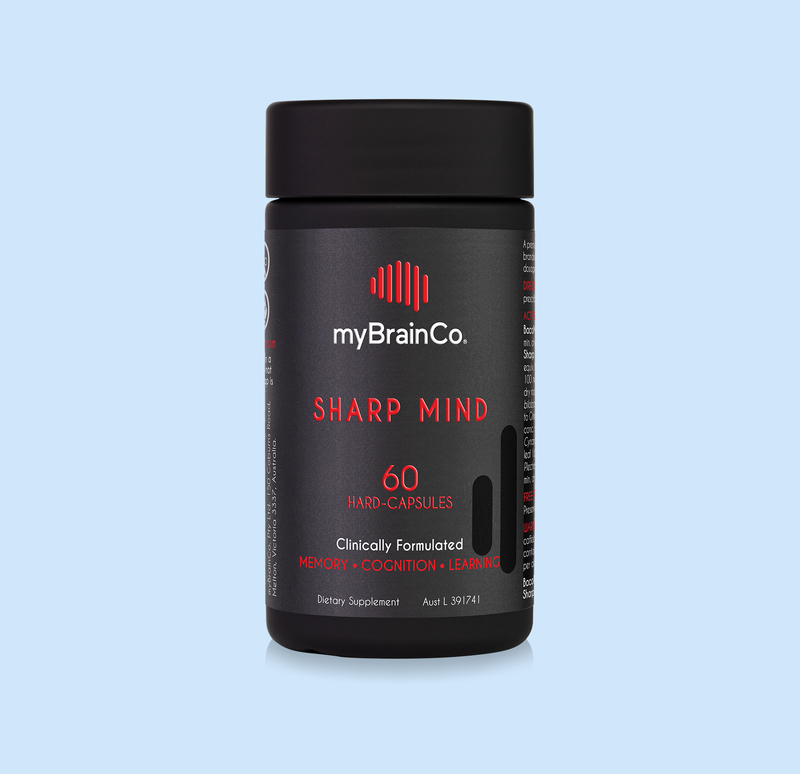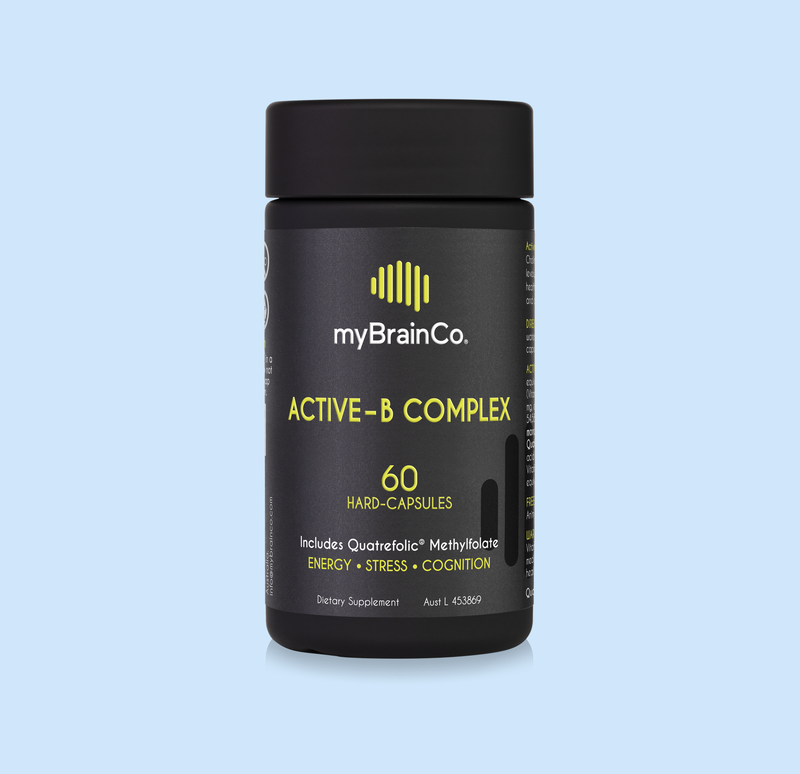Collagen has become one of the hottest commodities in the beauty industry, desirable for its ability to help turn back the clock on skin hydration and elasticity. It’s also gained popularity with athletes for helping with tissue healing and the prevention and recovery from injury. But did you know that collagen can also support brain health?
Yes, it’s true. Collagen can contribute to brain well-being thanks to its unique composition of amino acid peptides in a number of ways;
1- Collagen supports brain tissue integrity
Just like collagen can be used for healing, repair and degeneration in skin and joints, it can have regenerative capabilities in the brain. One of the markers of brain health is the integrity of the brain’s white and grey matter. A pilot trial on 30 participants aged 49-63 years determined that 5g of collagen daily over a four-week period showed measurable, significant improvements in the structure of the brain and contributed to improved cognitive function.
2- Collagen supports blood sugar markers
Research has shown that dementia occurs at much higher rates in people with uncontrolled blood sugar, such as those with diabetes. Elevations in blood sugar place additional risks on neuroinflammation, so practices that can support healthy blood sugar control can directly benefit brain health. In a study of 100 diabetic patients treated with marine collagen peptides, researchers showed that collagen supplementation could produce positive shifts in markers of glucose and fat metabolism. Furthermore, one of the main bioactive peptides, prolyl-hydroxyproline (Pro-Hyp), which is produced by the body in response to collagen supplementation, has been shown to be lower in people with diabetes.
3- Collagen supports antioxidant status
The brain is highly susceptible to toxins, and regular antioxidant consumption is valuable to help protect the brain from neuroinflammation and damage. Collagen has been shown to help to support the body’s key antioxidant systems; glutathione peroxidase, superoxide dismutase and catalase, as well as release peptides that help to scavenge free radicals.
4- Collagen contributes anti-inflammatory benefits
In addition to collagen’s ability to support the antioxidants that our body makes (e.g. glutathione, superoxide dismutase and catalase), which can exert indirect anti-inflammatory activity, collagen also contributes to decreased inflammation thanks to its high glycine content. Glycine is an amino acid that can support the body in controlling inflammation and free radicals by suppressing inflammatory chemicals. It has been reported that collagen may also help recovery from brain injury by promoting angiogenesis and that it is neuroprotective due to its anti-inflammatory effects.
5- Collagen’s amino acid profile can support sleep
Last but not least, sleep is well known to have a replenishing and restorative effect on brain function. Thanks to collagen’s naturally rich glycine amino acid profile it can have a calming effect on the central nervous system and may contribute to improved sleep quality. Research has shown that replenishing glycine can not only improve sleep quality but can also reduce the daytime sleepiness and fatigue experienced by those suffering from insomnia.
REFERENCES
- Koizumi S, et al. Effects of Collagen Hydrolysates on Human Brain Structure and Cognitive Function: A Pilot Clinical Study. Nutrients. 2019 Dec 23;12(1):50.
- Zhu CF, et al. Treatment with marine collagen peptides modulates glucose and lipid metabolism in Chinese patients with type 2 diabetes mellitus. Appl Physiol Nutr Metab. 2010 Dec;35(6):797-804.
- Hongdong S, Bo Li. Beneficial Effects of Collagen Hydrolysate: A Review on Recent Developments. Biomed J Sci & Tech Res. 2017;1(2).
- Zhang C, et al. Antioxidant activity analysis of collagen peptide-magnesium chelate. J Polymer Testing. 2023 Jan;117:e107892.
- Zhong Z, et al. L-Glycine: a novel antiinflammatory, immunomodulatory, and cytoprotective agent. Curr Opin Clin Nutr Metab Care. 2003 Mar;6(2):229-40.
- Kawai N, et al. The sleep-promoting and hypothermic effects of glycine are mediated by NMDA receptors in the suprachiasmatic nucleus. Neuropsychopharmacology. 2015 May;40(6):1405-16.



